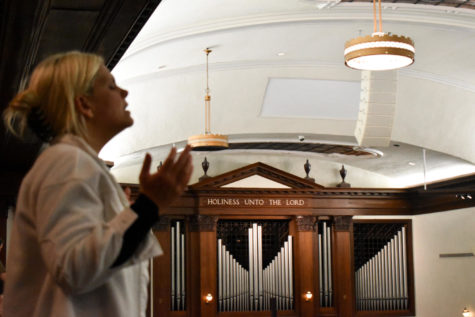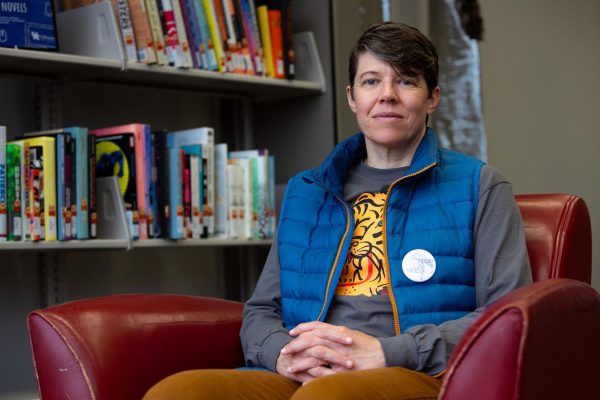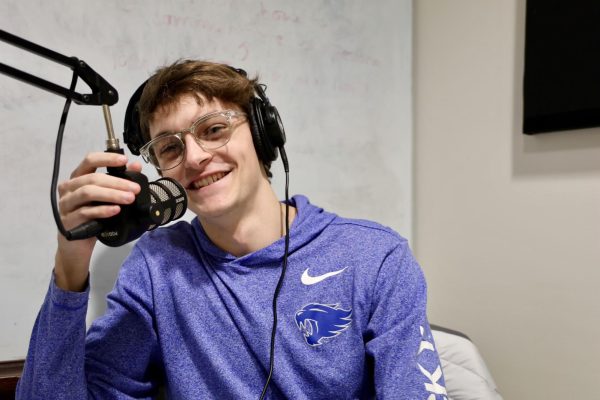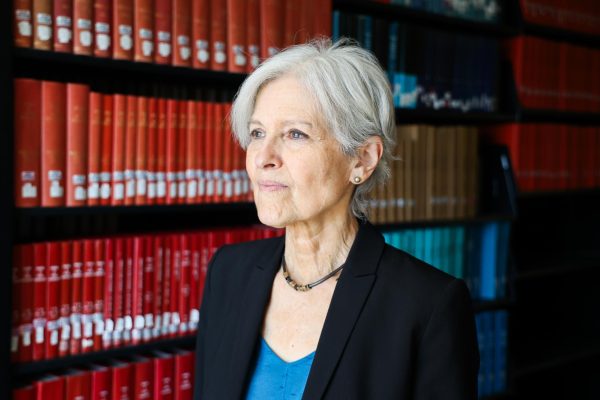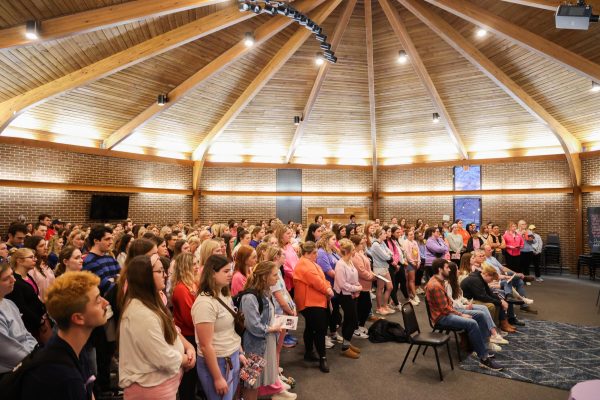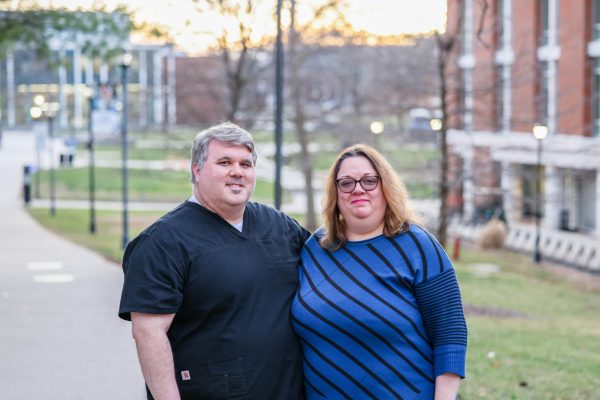First-generation students make up 18 percent of UK undergraduate population, face unique challenges
April 7, 2016
First-generation college students are among the students who most need financial support and guidance in pursuing their degree. Many of these students have tough transitions and lack the necessary information that helps students succeed in college.
According to imfirst.org, first-generation students make up 18 percent of the undergraduate student population at UK.
Michael Cantrell, a sophomore pharmacy student, is a first-generation student who grew up in Magoffin County, Kentucky. He began his college career majoring in chemistry at Morehead State University and completed a bachelor’s degree there before coming to UK to go to pharmacy school.
“My parents both, due to their specific circumstances, could not complete high school, but in place of that, to compensate for their lack of education, they both went straight into the workforce,” Cantrell said. “That always carried over and instilled in me a hard work ethic, and with that, I came to a realization that if there was going to be any good future for me, it would be resultant of a strong education.”
According to a 2010-2014 Census report, the percentage of Magoffin County residents 25 and older who had earned a bachelor’s degree or higher is 8.5 percent.
“I witnessed in high school people who were at a detriment, not because they were deserving of the detriment or lack of opportunities or access …That was a large driving factor, and seeing my parents live paycheck-to-paycheck was also a significant influence. Because as a pharmacist, you don’t have to live that way,” Cantrell said.
Cantrell said first-generation students are unique in the fact that they have to figure things out on their own as a result of need, with little assistance and without a plan for their success. According to Lydia Wims, director of Student Support Services, many parents of first-generation students do not understand the rigors or college, and many expect students to be able to come home every weekend or always be able to answer their calls.
“I believe the fact that they don’t understand the college process, a lot struggle before they get to college. Then, we began working with them, we noticed that a lot of them either haven’t filled out the FAFSA because they didn’t know they needed to or that they don’t understand what their financial aid package means when they got it,” Wims said.
Many programs offer support to first-generation college students at UK, such as the First Scholars Program, Robinson Scholars Program, Student Support Services and the Center for Academic Resources and Enrichment Services. These programs work to make sure that students succeed and stay in college and have even increased the retention rate among first-generation students at the university.
“Being a first-generation student is a powerful story, because what we do know about first-generation students is that they’re very resilient, they’ve had to figure things out on their own for much of their life. They’re very hard working. Things haven’t come easily and they don’t expect any handouts or anything from anybody,” said Matthew Deffendall, director of the First-Generation Initiatives.
Another UK program dedicated to helping first-generation students is the Robinson Scholars Program, a scholarship program that focuses on 29 counties in Eastern Kentucky. According to George Scott Jr., the college services coordinator for the Robinson Scholars Program, the goal of the program is to educate Eastern Kentucky students about college and provide them with various preparatory services, such as workshops, camps and retreats that help them in their transition to college. According to Scott, the program has around an 88 percent retention rate and an average GPA of approximately 3.3.
“My advice for first-generation students … would be to get involved on-campus,” Scott said. “There are tons of clubs and organizations and programs and research and education abroad and too many things that are offered for a student to have to stay in the library or in their room alone without being part of some social clubs and finding their niche on-campus.”
Similarly, the First Scholars program offers support to Kentucky residents by awarding 20 first-generation students who have enrolled at UK a scholarship of $5,000 and offering support and guidance throughout their college career.
For minority students, The Center for Academic Resources and Enrichment Services provides services to students who are underrepresented within UK, such as students who are African-American, Latino, American Indian, and William C. Parker recipients.
“Our goal is to help the university to retain and graduate underrepresented students,” said Toni Thomas, director of C.A.R.E.S.
C.A.R.E.S. is an academic support unit under the auspices of the Office for Institutional Diversity. The program offers academic planning provided by program counselors, tutoring, assistance through individual meetings and workshops, and enrichment programs and activities.
“Stick with it,” Cantrell said. “No matter how difficult it seems or how unappreciated you feel there will always be a time when that transpires and it will happen. It’ll come along, where your presence is appreciated, where your work is acknowledged and where you receive praise for what you have done.”










































































































































